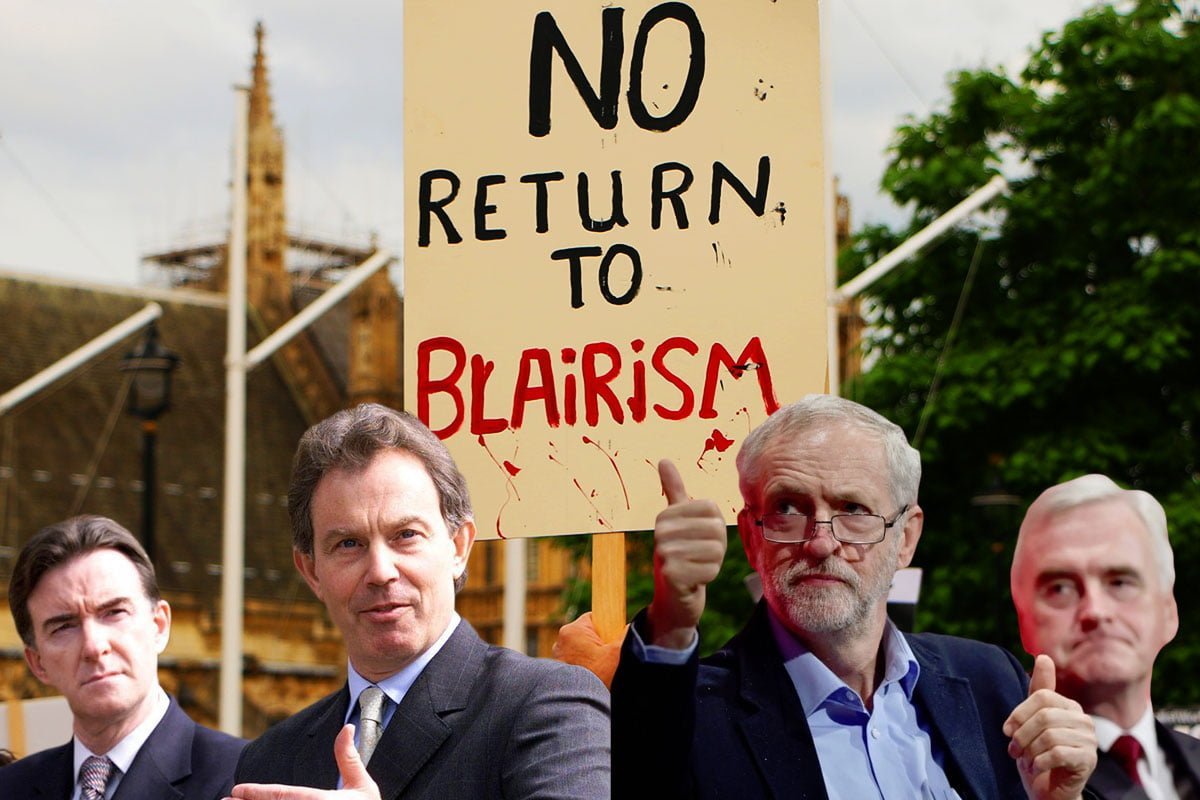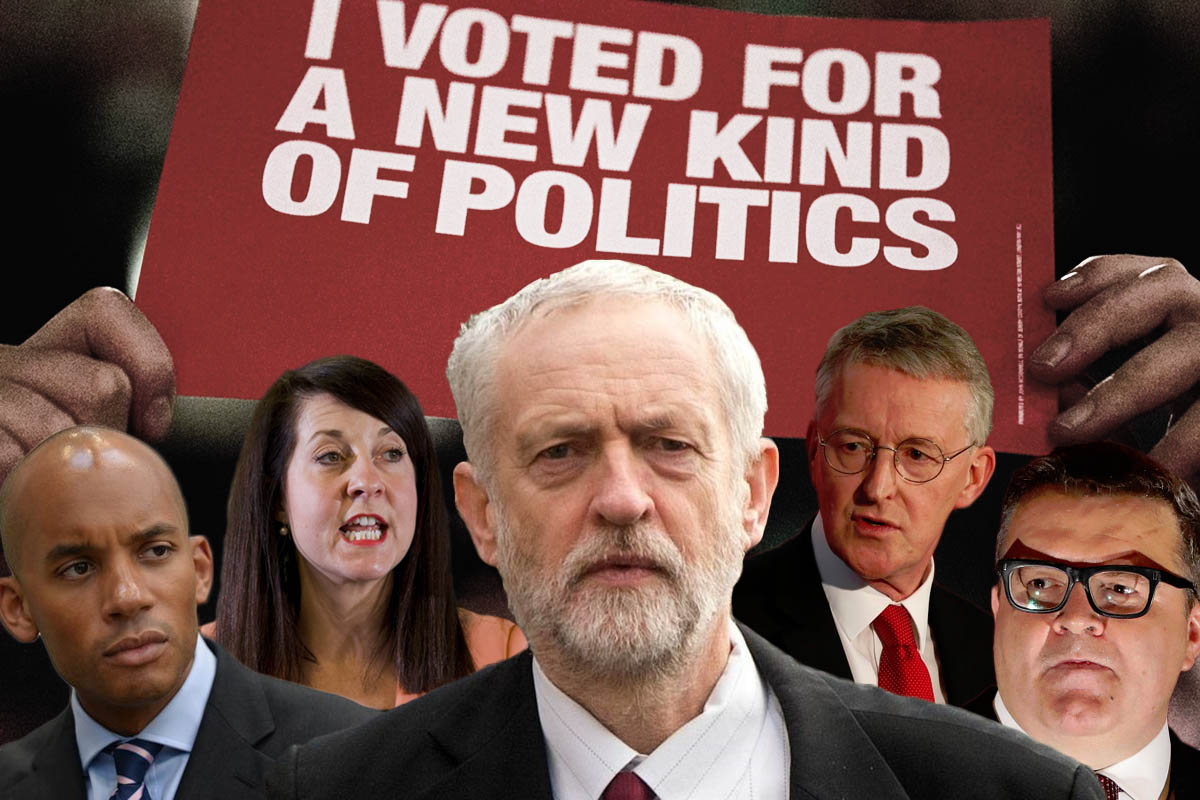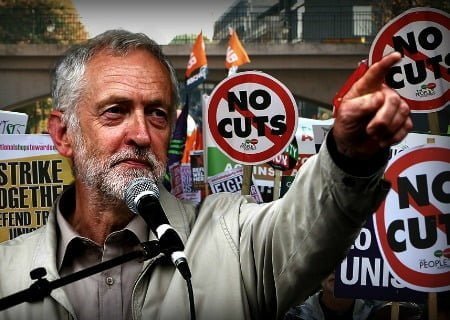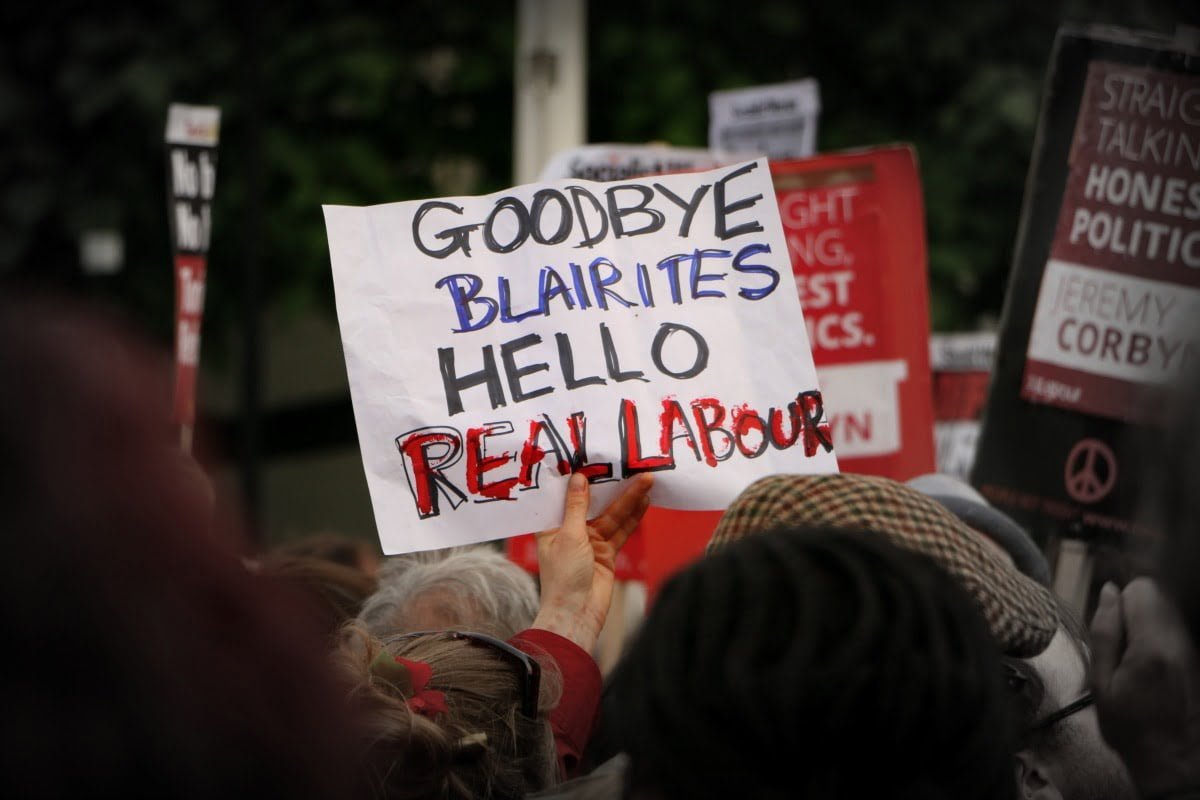The momentum generated by Labour’s election campaign and surprise success has continued, strengthened, and gathered pace. Rank and file activists are continuing to mobilise and organise in an effort to complete Labour’s transformation, reclaiming the Party from the Blairites and creating a powerful weapon to fight for the interests of the working class.
The shock results of the 8th June election mark a clear turning point in the future of the Labour Party. Having continuously worked to undermine Corbyn’s leadership over the past two years, the Blairite saboteurs were on the point of suffocating the last flames of hope amongst workers and youth looking for an anti-austerity, left-wing Labour Party. Following the Party’s surprise electoral success, however, it is the Labour right who find themselves on the back foot – “dead and buried” in the words of the veteran left, Ken Livingstone.
Even the most cynical and critical of Corbyn’s opponents have had to concede defeat, admitting that it was the leader’s bold message and manifesto, combined with a mass grassroots campaign, that led to Labour increasing its vote share by almost 10% compared to 2015 and making a net-gain of 30 seats. Indeed, with Labour now riding high in the polls, 8 percentage points clear of the Tories according to latest surveys, it is clear that Corbyn is firmly in the driving seat.
Blairites demoralised
Most notably, Tom Watson, the deputy leader and right-wing ringleader, having previously demanded Corbyn’s resignation, has now stated that “Jeremy’s position is completely secure as leader”, having forged an “unbeatable” electoral alliance of enthused workers and youth. Aside from the fact that the security – or not – of Jeremy’s position is not Watson’s decision to make (despite what he may think), the Machiavellian MP’s words are a clear reflection of the demoralisation that now pervades the Blairite camp.
Not only have the election results destroyed the Blairite myth of the need to cling to the so-called “centre ground” for success (and, by association, that a Corbyn-led Labour is “unelectable”), but the election campaign itself has acted to galvanise and mobilise Labour’s rank and file, putting the Labour right wing on the defensive.
Having been inspired and roused “like lions after slumber” by the process of the campaign, ordinary grassroots members, organised both through Momentum and organically on social media, are now working from the bottom up to carry this mobilisation forward and complete the transformation of the Party, threatening the Blairites’ previously unshakeable position at every level.
Taking back control
Reports from across the country indicate that the Left – spurred on by the election results, as well as two years of not-forgotten criminal activity by the Blairite gangsters – is now taking back control and reclaiming Labour from the careerists and carpetbaggers who have infested the Party for the past two decades (or more).
indicate that the Left – spurred on by the election results, as well as two years of not-forgotten criminal activity by the Blairite gangsters – is now taking back control and reclaiming Labour from the careerists and carpetbaggers who have infested the Party for the past two decades (or more).
Constituency Labour Party (CLP) meetings taking place in the past few weeks have seen a string of successes for Momentum-backed candidates, demonstrating the changed balance of forces inside the Party.
In Liverpool Wavertree, for example, the Left won 9 out of 10 positions on the CLP executive. Underlining who is now in control of the Party, one of the newly elected committee officers asserted that the current local right-wing MP, Luciana Berger, would have to consult the membership over future important votes in Parliament: “she will have to be answerable to us.”
Elsewhere, in Hackney South and Shoreditch, Momentum supporters won a clean sweep in the recent CLP AGM, comfortably taking all executive positions off the local right wing, as well as winning the elections for delegates to the upcoming Labour national conference in September. A similar pattern has been seen in area after area, setting the scene for a potentially fierce battle in Brighton, the venue for the annual conference, where vital votes on the future of the Party will be taken.
Rage against the machine
 At the core of this fight will be a number of proposals to democratise Labour from top to bottom, cement Corbyn and the Left’s position in the Party, and wrestle back control of the machinery and apparatus that currently lies in the hands of the Blairite bureaucracy.
At the core of this fight will be a number of proposals to democratise Labour from top to bottom, cement Corbyn and the Left’s position in the Party, and wrestle back control of the machinery and apparatus that currently lies in the hands of the Blairite bureaucracy.
Changes to be debated will likely include the composition and makeup of the National Executive Committee (NEC), which is currently evenly-balanced in terms of pro- and anti-Corbyn forces, and the threshold of nominations from MPs required for a candidate to make it onto the ballot in future leadership contests. In both cases, conflicting proposals are being made by the Left and Right, with the Blairite Labour First faction calling for more representation of Labour councillors on the NEC and a return to the electoral college system of leadership elections, and Corbyn supporters demanding more representation of grassroots members on the NEC and the ability for CLPs and trade unions to nominate leadership candidates.
Anyone involved in the recent election campaign can attest to the disruption and damage that this right-wing bureaucracy has caused the Party and its chances of success. Such scandalous behaviour was already well-documented after last year’s “chicken coup”, when Party apparatchiks on the NEC went to the High Court, first in an attempt to keep Corbyn off the ballot against any leadership challenge, and then to deny 130,000 new members a vote in the subsequent election.
The snap election provided further ample evidence of such shameful and unforgivable conduct, with the Party HQ nationally purposefully prioritising relatively safe seats held by right-wing, Progress-backed Labour MPs rather than allocating resources to potentially winnable seats with left-wing, pro-Corbyn candidates. Locally, meanwhile, Blairite MPs up for re-election sought to distance themselves from Corbyn, the manifesto, and even the Party itself, whilst activists were explicitly told by Party organisers to redirect conversations on the doorstep away from any mention of Corbyn and his policies.
In Enfield North constituency, for example, the local Labour candidate, Joan Ryan, went so far as to write to residents informing them that she believed voters had more confidence in Theresa May than Jeremy Corbyn. Needless to say, Ryan’s letter was duly picked up by (or leaked to) the national media, who – along with the Tories – took delight in using it as yet another stick to beat the Labour leader with. Such is the anger amongst ordinary members in response that they are registering an official complaint against the MP and the CLP executive.
Without this internal sabotage, Labour might well have eaten even further into the Tories’ vote, destroying the possibility of May forming a government at all. Moves are therefore now openly being discussed to remove Party general secretary Iain McNicol, who was appointed under Ed Miliband and has been a key figure in the bureaucratic Fifth Column in Labour HQ.
Complete the transformation
 Importantly, the idea of reselection is now being pushed back to the fore, with new Party chair, the left-wing Wansbeck MP Ian Lavery, coming out in favour of “different ways and means” of selecting Labour candidates in the future that put more power in the hands of the rank and file. “You can’t be any more democratic than allowing the people in your constituency to pick who they want as their MP,” Lavery stated, before firing a shot across the bows of the Blairites: “We are a broad church. Some might argue, and I would be one of them, that we might be too broad a church.”
Importantly, the idea of reselection is now being pushed back to the fore, with new Party chair, the left-wing Wansbeck MP Ian Lavery, coming out in favour of “different ways and means” of selecting Labour candidates in the future that put more power in the hands of the rank and file. “You can’t be any more democratic than allowing the people in your constituency to pick who they want as their MP,” Lavery stated, before firing a shot across the bows of the Blairites: “We are a broad church. Some might argue, and I would be one of them, that we might be too broad a church.”
Lavery’s assertion is 100% correct. For too long, the Party has been considered the private property of a New Labour cabal in Westminster; a vehicle for the personal advancement of the few, not the interests of the many. Ordinary members have been treated with contempt, used as mere foot soldiers for delivery leaflets and securing the victory of careerist parasites (and, as with many Socialist Appeal activists, purged by the unelected bureaucracy for fighting for socialist ideas). Unaccountable MPs have conspired against the membership and the democratically elected leader, whilst Labour councillors vote through cuts on behalf of the Tories.
In order to put Labour in power and implement the bold left-wing programme promised at the last election, all of this must change. Workers and youth who have been drawn into political activity must be organised. Genuine representatives of the working class must be put in place at every level. And socialist policies must be placed back on the agenda. In short, the transformation begun with Corbyn’s leadership victory in 2015 must be completed.






